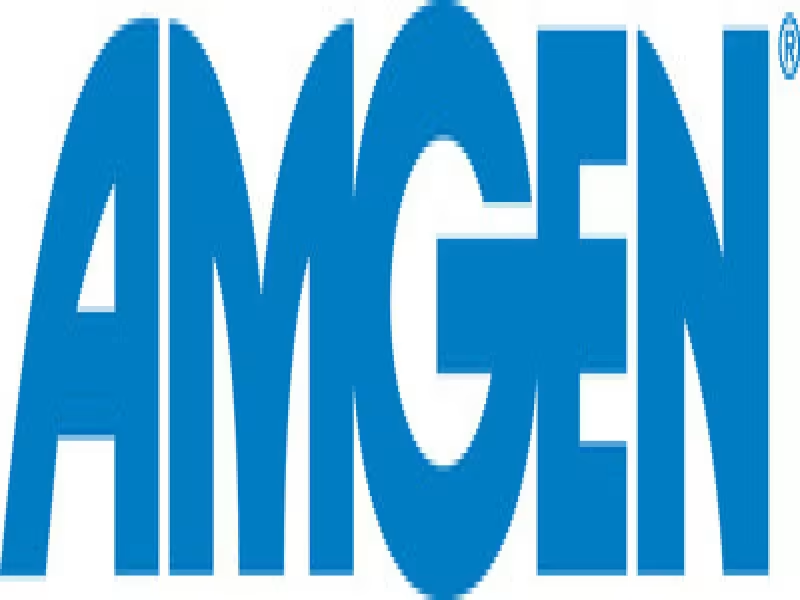
SHERIDAN, WYOMING - November 13, 2025 - Amgen's landmark VESALIUS-CV trial is redefining where PCSK9 inhibition fits in cardiovascular care, showing that Repatha can significantly cut major events even in high-risk adults who have never had a heart attack or stroke. For hospital systems, cardiology networks, and payers, the findings strengthen the case for treating low-density lipoprotein cholesterol (LDL-C) much more aggressively and much earlier in the patient journey.
Landmark trial tests Repatha in a true primary-prevention setting
VESALIUS-CV was built around a question that many clinicians and payers have been asking since Repatha's original FOURIER outcomes data in 2017: can the same PCSK9 strategy also prevent events in patients who have not yet suffered a heart attack or stroke? To answer that, Amgen enrolled more than 12,000 adults with established atherosclerotic cardiovascular disease (ASCVD) or high-risk diabetes, but with no prior major cardiovascular event.
Roughly 85% of participants were already on high- or moderate-intensity LDL-C-lowering therapy, reflecting current standards of care. Patients were randomized to receive either Repatha or placebo on top of this optimized background treatment and were followed for a median of around 4.5 years, creating one of the longest primary-prevention PCSK9 datasets to date.
Clinically meaningful risk reduction on top of statins
The trial's dual primary endpoints captured both classic hard outcomes and a broader composite reflecting real-world practice. Investigators tracked time to first occurrence of:
- Coronary heart disease death, heart attack, or ischemic stroke
- Coronary heart disease death, heart attack, ischemic stroke, or any ischemia-driven arterial revascularization
Both endpoints were met with statistical and clinical significance, confirming that adding Repatha to standard lipid-lowering therapy delivers incremental benefit beyond statins or other LDL-C treatments alone. No new safety signals were observed, an important point for payers and providers considering scaling a biologic therapy into primary-prevention protocols.
From secondary to primary prevention: a broader market for PCSK9 therapy
FOURIER previously established Repatha's value in patients with ASCVD and a history of major cardiovascular events. VESALIUS-CV now extends that story into the primary-prevention arena, where the majority of heart attacks and strokes still occur as first-time events. The press materials point out that every 40 seconds a heart attack or stroke happens in the U.S., and three out of four of those events are first occurrences, underscoring how much risk resides upstream of today's treatment thresholds.
At the same time, a recent study cited by Amgen shows that more than 80% of high-risk patients without prior events remained above recommended LDL-C targets one year after follow-up. For health systems focused on cardiometabolic care pathways, the new outcomes data support a more proactive approach to those uncontrolled LDL-C populations.
Stakeholder perspective: positioning Repatha as a cornerstone therapy
Amgen is clearly signaling that it sees Repatha as a foundation of comprehensive lipid management rather than a last-resort add-on. As Jay Bradner, M.D., executive vice president of Research and Development at Amgen, put it: "These results mark an important milestone in the fight against cardiovascular disease, the leading cause of death worldwide. The benefit across endpoints and established safety profile underscore Repatha's role as a cornerstone therapy in comprehensive lipid management," said Jay Bradner, M.D., executive vice president of Research and Development at Amgen. "Repatha is known as a highly effective LDL-C lowering treatment and is now the first and only PCSK9 inhibitor shown to reduce cardiovascular events in high-risk adults without prior heart attack or stroke. These additional data demonstrate that Repatha has the potential to reach tens of millions more patients earlier in their journey, before a life-altering event occurs."
For life science strategists and formulary committees, the message is that the same molecule can now support both primary and secondary prevention indications, with long-term evidence in diverse risk profiles.
Implications for hospitals, payers, and integrated care models
If regulators and guideline bodies align with the VESALIUS-CV findings, hospitals and cardiology practices may start redefining their LDL-C escalation algorithms. Segments likely to feel the impact include:
- High-risk ASCVD and diabetes clinics that currently rely on maximized statin therapy alone
- Population-health programs targeting patients who remain above LDL-C goals despite guideline-directed care
- Payers and pharmacy benefit managers recalibrating models for avoiding first cardiovascular events
The broadened U.S. label earlier this year, which already includes adults at increased risk for major adverse cardiovascular events due to uncontrolled LDL-C, provides a regulatory foundation for these shifts. For readers tracking the broader cardiovascular drug market outlook, VESALIUS-CV adds weight to the idea that biologic lipid-lowering will move steadily upstream.
Repatha's evidence base and what comes next
Beyond VESALIUS-CV, Amgen emphasizes that Repatha has been studied over 15 years in 51 clinical trials with more than 57,000 patients and is approved in 74 countries. The company is also investing in additional investigational programs that target related cardiometabolic drivers such as Lp(a), obesity, diabetes, and hypertension, aiming to combine LDL-C management with broader risk-factor control.
Full VESALIUS-CV results will be presented at the American Heart Association Scientific Sessions and submitted to a peer-reviewed journal, steps that will be watched closely by clinicians and payers assessing how quickly to integrate the new evidence into treatment pathways. For detailed prescribing information and global indication status, stakeholders can consult the official Repatha resources on Amgen's website.